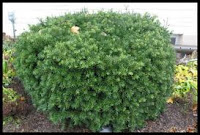Excerpt from: Cuddly Coworkers can
be Good for Employees. And Good for Business
By Maryann Hammers
Best Friends Magazine;
November/December 2012
A skateboard factory may not seem a
likely home for a cat. But a former starving stray thinks that
Landyachtz Longboards in Vancouver, Canada, is the cat's meow.
Employees discovered Dumptruck – as
the cat is named – foraging in a dumpster. “The choice [to keep
her] was simple,” says employee Nick Breton. “She was
rough-looking, hungry and alone.” Five years later, she's “fat
and happy,” Breton says. “She tends to make little beds out of
merchandise, like soft T-shirts, but we love her anyway. She's always
down for a cuddle or to chase a shoelace around the shop.”
Everyone who shares a home with a
feline friend knows how helpful a cat can be. Think of how cats excel
at wrapping gifts, vacuuming and folding laundry. OK, on second
thought, perhaps cats are not the best with chores, but a workplace
cat really can be good for business. “I would love to see an
increase in workplace pets. Animals make a setting warm and
inviting,” say Abbi Collins, adoption manager for the Cat Care
Society, a nonprofit cat shelter near Denver.
There are plenty of stories about
homeless cats who become office cats and then “pay it forward” by
helping to reduce stress in the workplace and enhance customers'
perception of the business.
At Texas publishing company Mike Byrnes
& Associates, Jeffy, a tuxedo male adopted from the city pound,
was so good at his job of calming frazzled nerves that he had his own
business cards. His title: stress manager. And in Rockford, Illinois,
Kathy Velasco's small advertising agency is home to four abandoned
cats. “We deal with lots of deadlines and client demands,” she
says. “I always kid that when employees get stressed, I throw a cat
in their laps to calm them down. And clients love that we rescued the
cats – we get extra points for that.”
The employees of HKA Inc., a Southern
California public relations firm, took in Kitten, a 12-year-old
female tabby. “She just showed up one day when she was a few months
old,” says employee Robyn Williams. “When we feel stressed, we go
looking for Kitten. Her antics make us laugh and remind us that life
should be fun.”
Theresa Espinola says that Art Works, a
Northern California art studio and sign shop, enjoyed a business
boost after Hoover, a homeless flame-point Siamese, moved in. “Our
customers think better of us,” she says. “He is obviously well
cared for and friendly, so that shows we are kind and caring.”
The evidence isn't just anecdotal.
Studies confirm that a cat in the office means a less stressed
workforce and a happier workplace, says Meredith Wells-Lepley, Ph.D.,
a researcher at the University of Kentucky's Institute for Workplace
Innovation. One of her studies, “Labradors to Persians, Perceptions
of Pets in the Workplace,” found that pets improve customer and
employee moods and reduce stress. Another one of her studies,
“Critters in the Cube Farm,” published in the Journal of
Occupation Health Psychology, shows that cats foster social
interaction, create a positive impression and make the work
environment seem more friendly.
















